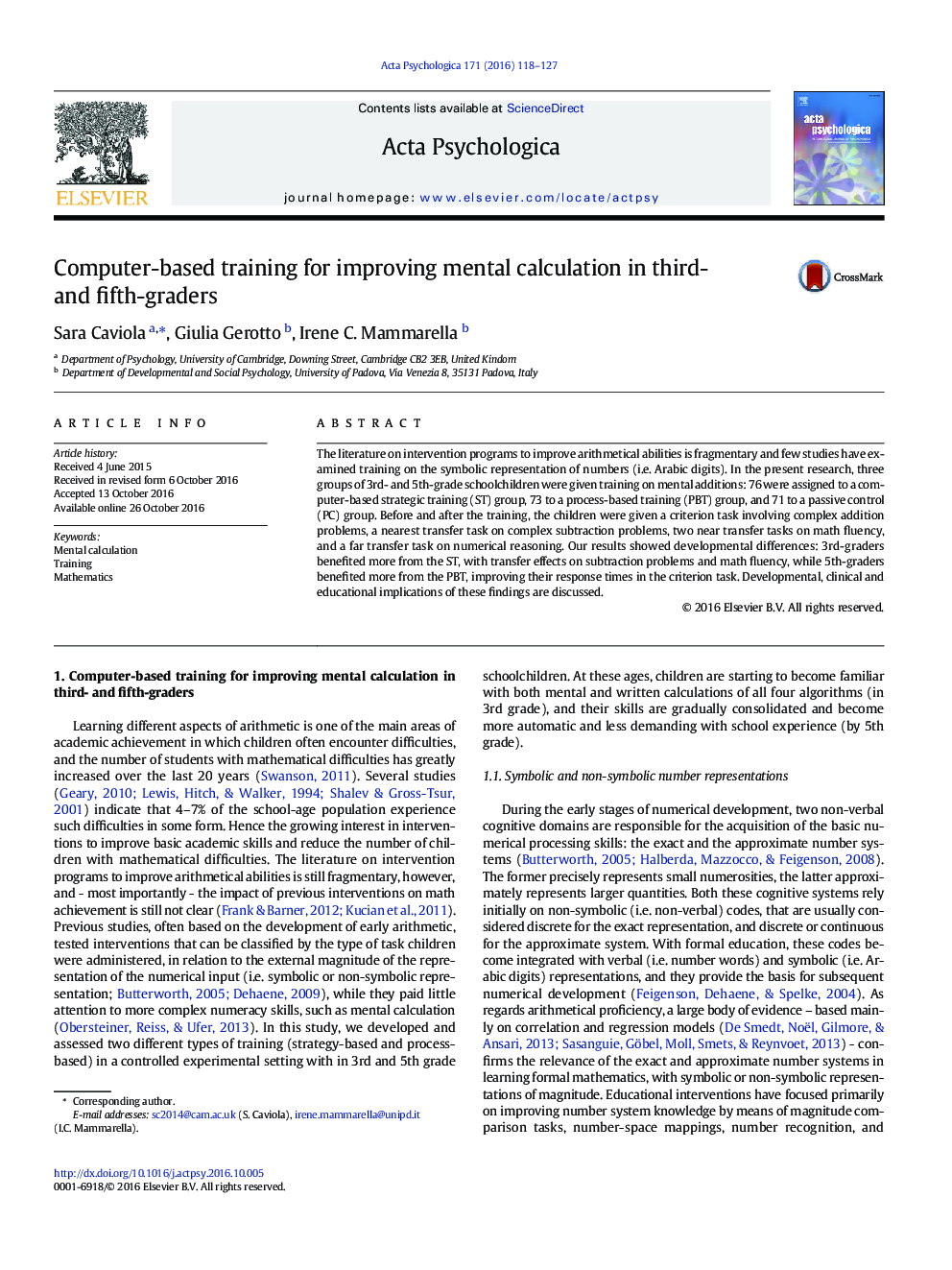| Article ID | Journal | Published Year | Pages | File Type |
|---|---|---|---|---|
| 5040287 | Acta Psychologica | 2016 | 10 Pages |
â¢The paper investigated the benefit of 2 computer-based trainings on mental additionsâ¢A strategic and a repeated practice training were compared with a passive control group.â¢3rd graders benefited more from the ST, 5th graders benefited more in the RP trainingâ¢Transfer effects on subtraction problems and math fluency were observed in 3rd graders.
The literature on intervention programs to improve arithmetical abilities is fragmentary and few studies have examined training on the symbolic representation of numbers (i.e. Arabic digits). In the present research, three groups of 3rd- and 5th-grade schoolchildren were given training on mental additions: 76 were assigned to a computer-based strategic training (ST) group, 73 to a process-based training (PBT) group, and 71 to a passive control (PC) group. Before and after the training, the children were given a criterion task involving complex addition problems, a nearest transfer task on complex subtraction problems, two near transfer tasks on math fluency, and a far transfer task on numerical reasoning. Our results showed developmental differences: 3rd-graders benefited more from the ST, with transfer effects on subtraction problems and math fluency, while 5th-graders benefited more from the PBT, improving their response times in the criterion task. Developmental, clinical and educational implications of these findings are discussed.
